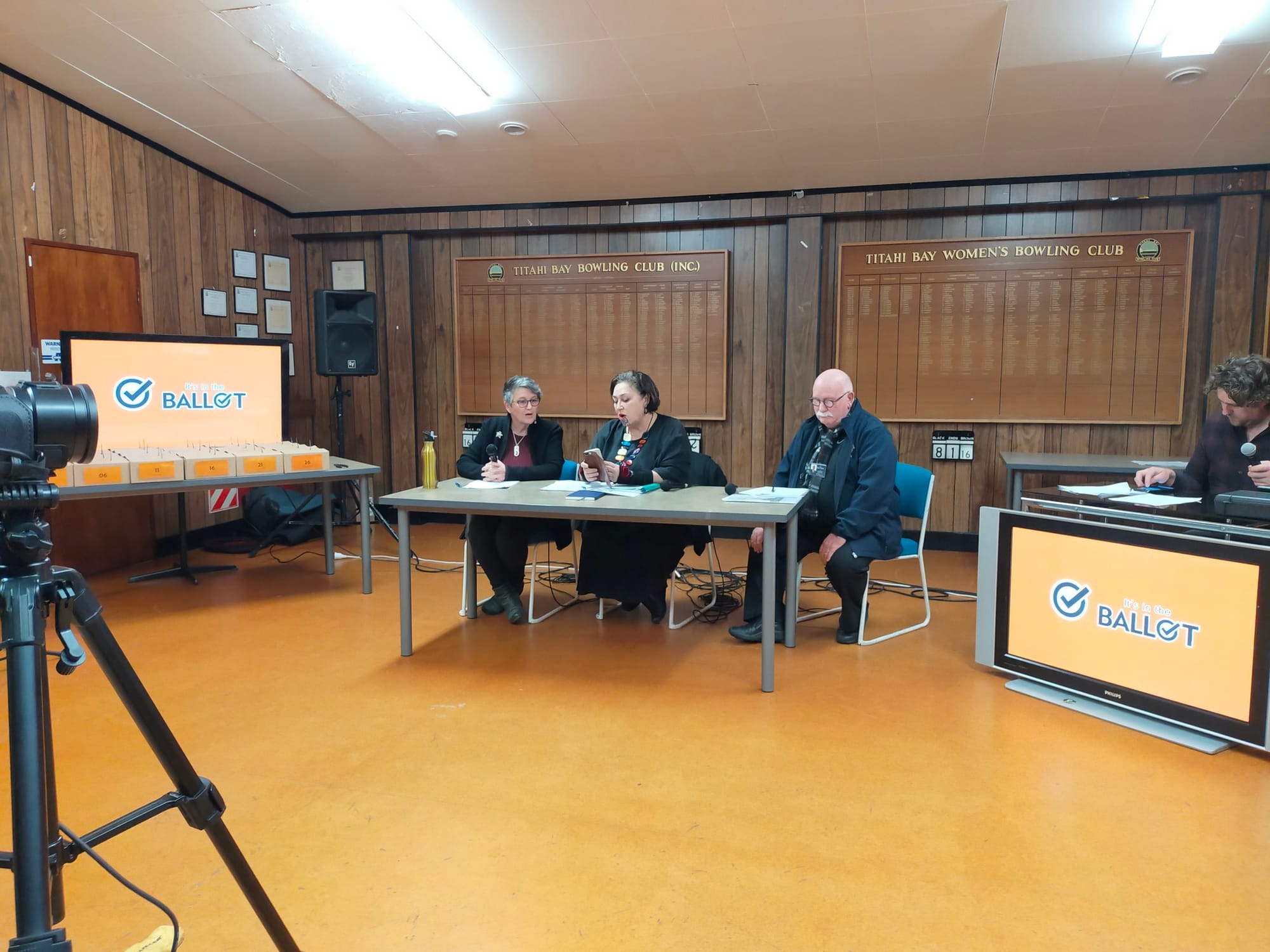Table of Contents
Most candidate debates are formal affairs with the audience hearing candidates’ pitches on why they should vote for them. This is usually moderated by a journalist who challenges each candidate with questions about issues and policy. Some debates can be entertaining due to the personalities involved in the debate: the people debating or even the moderator. The most entertaining debate I can remember was back in 2017. It was held at Victoria University when representatives from various youth wings debated while being moderated by New Zealand’s best Donald Trump impersonator.
So I was quite surprised to hear of a feature of the 2020 elections which was a series of debates held in the form of a game show. ‘Its In The Ballot’ is the newest game show which presents a platform for all candidates in a very entertaining way. Based on the show ‘Its In The Bag’, contestants are invited to choose their questions from about 30 boxes (or ballots) which each hold a question that the candidates do not know about and are therefore not prepared for. Questions are submitted to the show online or through text before each episode; they are then added to the pool of questions for the ballots. Following this is a section called ‘Hard Hitting Questions’ featuring questions which focus on each council and their issues, which are written and asked by the host.
The show is hosted and founded by political figure and former local body candidate Sam ‘The Man With The Plan’ Somers. He explained to me that his motivation was his experience in the 2019 local body elections, in which he realized there was no platform for all for candidates to present their policies and positions outside of the formal debates. His dream was to see his show touring around the country covering all areas for both local and general elections.

What this shows is the overlap between entertainment and politics, something that scholars have noticed. Known as ‘para-social’ relationships, politicians become charismatic figures who are able to communicate effectively in mass media and specifically in entertainment.
Political entrepreneurs have figured out that in order to gain influence they need to enter into the culture in order to become recognizable to society. In New Zealand, we have seen this with shows like ‘Seven Days’ and their famous segment ‘Yes Minister’ featuring a politician being interviewed in a comedic way.
Another show is ‘New Zealand Today’ hosted by comedian Guy Williams featuring politicians such as Murray Chong and Leo Molloy. Obviously, the best personification of this is Donald Trump, who was able to start off as a cultural icon before using his fame for his campaign. It seems this has made other people realise you do not need a political science degree to get into politics. Why else would a businessman and a motorsport commentator both be standing for the Auckland mayoralty? Why would a church pastor be standing for the Christchurch mayoralty? Because entertainment is a way to be seen by society and achieve recognition, which can be used to gain votes.
The other benefit is that it presents politics in a more entertaining and engaging way. Discussion about policy and issues can be boring, especially when it includes figures and statistics. Scholars have noticed that the general public has less and less time to look deeper into issues, along with a diminishing attention span. This is why politicians have become experts at boiling down their talking points to soundbites. This gamification of the town hall makes the political discussion much more entertaining and therefore will grab the public’s attention.
In general, outside of election season and maybe outside of Wellington, people do not care about politics. They are too busy living and working to be thinking about what happens in government. However, people escape into the world of fantasy, which is why we have entertainment.
In the dictionary, entertainment means ‘providing amusement or enjoyment’. After a hard day’s work, people want to be distracted by something that does not require mental energy. Therefore, the people who distract the public and get their attention are more likely to become famous. We call these people ‘celebrities’ now. It’s because the public would rather be entertained by celebrities than watch boring politicians talk about policy. This is why it is in the interests of political entrepreneurs to enter into the view of the public which is entertainment.
I managed to go to two episodes of this show. I found it quite entertaining. The candidates were asked questions from those that had been submitted. This made things interesting as it kept them on the hot seat.
My only concern with the online tool was that it did leave it open to anyone outside of the community to insert the question. However, it did allow more public engagement, which is something lacking from formal debate. You could either go to the episodes live or watch them online on Twitch, YouTube and Facebook.
Sam really knew his stuff, and his ‘Hard Hitting Questions’ indicated that he had researched the issues. This was made more fun with two ‘booby questions’ in the boxes which included being given one chance to defer a question or to choose not to answer.
This show is at the moment currently sponsored by businesses, which means that it is currently limited by its budget to run only in the Wellington region and only part-time. Some of you would be interested to know that the show’s pilot episode was supported by Councillor Jill Greathead, who now runs Refresh Local Democracy. As the show grows its audience, I hope it will grow its support and funding. I encourage those of you who live in the Wellington region to go to one of the episodes to support a fun new way of political engagement.









